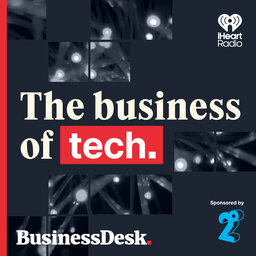A serial founder's guide to being totally wrong
Rowan Simpson has been part of most of NZ's most well known and loved software startups: TradeMe, Xero, Vend, Timely and many more.
Peter sits down with Simpson to talk about his new book, his advice for founders, and how NZ can light a fire under its startup scene.
Reading list
 The Business of Tech
The Business of Tech


